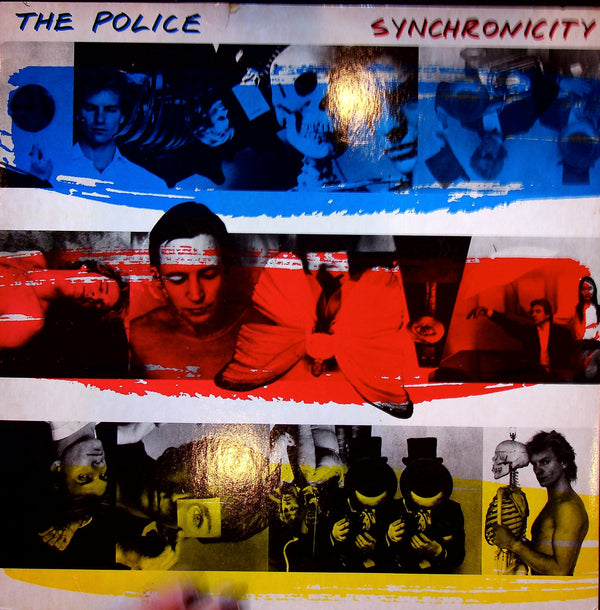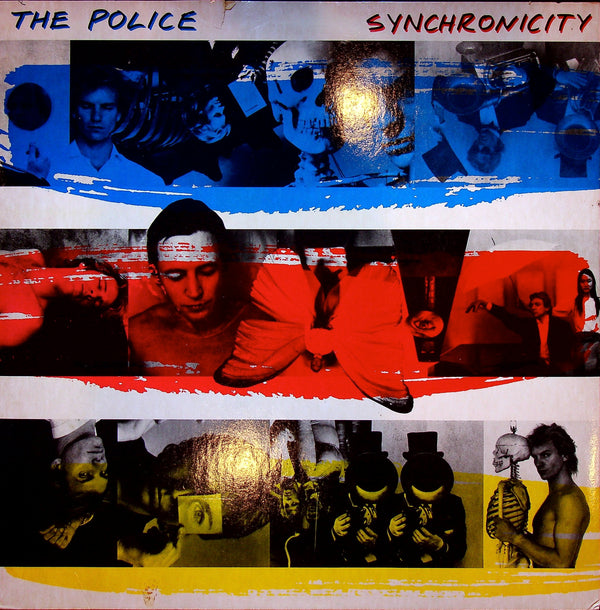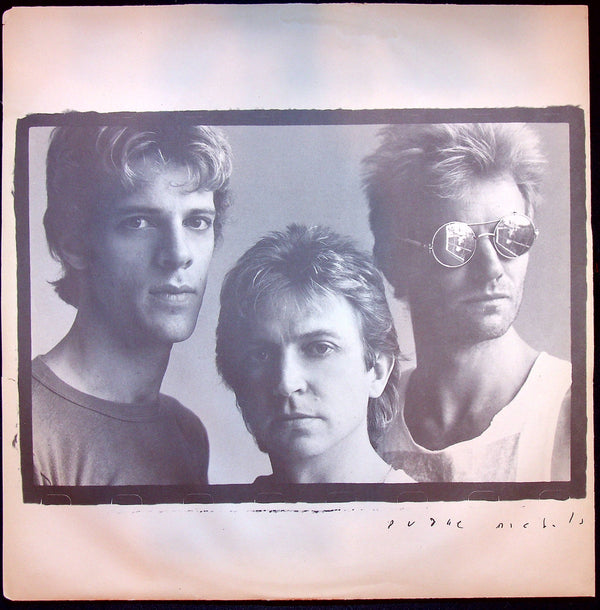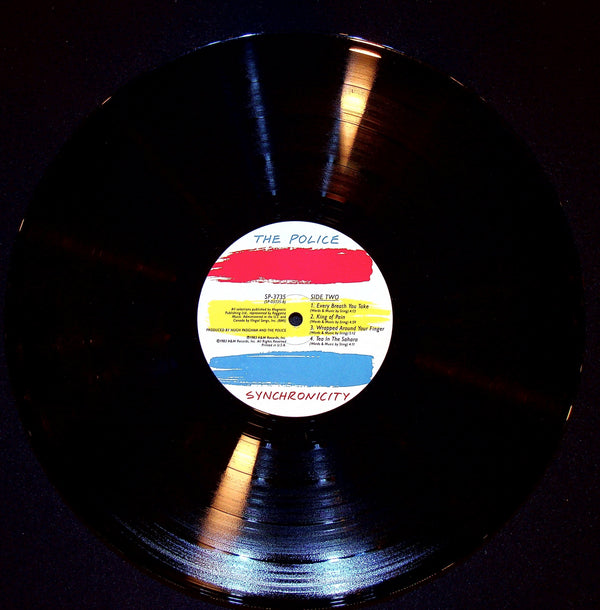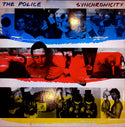Synchronicity is the fifth and final studio album by The Police, released in 1983. Their most popular release together, Synchronicity includes the number one single, "Every Breath You Take."
The album's title was inspired by Arthur Koestler's The Roots of Coincidence, which mentions Carl Jung's theory of Synchronicity. Sting was an avid reader of Koestler, and also named Ghost in the Machine after one of his works.
Synchronicity topped both the Billboard Pop Albums and Billboard 200 charts (ending the reign of Michael Jackson's Thriller for a while in the US). It won a Grammy Award for Best Rock Performance by a Duo or Group with Vocal.
In 2001, the TV network VH1 named Synchronicity the 50th greatest album of all time. In 2003, the album was ranked number 455 on Rolling Stone magazine's list of the 500 greatest albums of all time.
The album marked a significant reduction in the reggae influences that were a part of the band's first four records, instead featuring production-heavy textures and liberal use of synthesizers that, at times, drove entire songs ("Synchronicity I", "Wrapped Around Your Finger"). The influence of World music can also be heard in songs such as "Tea in the Sahara" and "Walking in Your Footsteps". Sting's material dominates the album, with the two short tracks by Andy Summers ("Mother") and Stewart Copeland ("Miss Gradenko") being seen by the band themselves as concessions.
As with their prior album, the basic tracks for Synchronicity were recorded at AIR Studios, Montserrat. For sound engineering reasons, the three band members recorded their parts in separate rooms: Copeland with his drums in the dining room, Sting in the control room, and Summers in the actual studio. This physical separation underscored the increasing tension and strain in the relationship between the bandmates. According to co-producer Hugh Padgham, subsequent overdubs were actually done with only one member in the studio at a time due to such strain.
"Synchronicity I" starts the album off with a sequencer line that repeats throughout the song. "Walking in Your Footsteps" features lyrics concerning the relation between extinct dinosaurs and nuclear weapon equipped humans, and is followed by the jazziest song on the album, "O My God". (The song is actually a reworked version of the early Police song "Three O'Clock Shot" which was never recorded on an album but was widely bootlegged from live performances.) "Mother" features strange, Indian-like sounds and screamed vocals by Andy Summers, and "Miss Gradenko" is a two-minute song about a woman in the middle of the Soviet bureaucracy. "Synchronicity II" features extensive use of audio feedback, and is the heaviest song on the record.
Media Condition- (VG-)
Sleeve Condition - (VG)
Track List -
| "Synchronicity I" | 3:23 | ||
| 2. | "Walking in Your Footsteps" | 3:36 | |
|---|---|---|---|
| 3. | "O My God" | 4:02 | |
| 4. | "Mother" | Andy Summers | 3:05 |
| 5. | "Miss Gradenko" | Stewart Copeland | 2:00 |
| 6. | "Synchronicity II" | 5:00 |
| No. | Title | Writer(s) | Length |
|---|---|---|---|
| 7. | "Every Breath You Take" | 4:13 | |
| 8. | "King of Pain" | 4:59 | |
| 9. | "Wrapped Around Your Finger" | 5:13 | |
| 10. | "Tea in the Sahara" |

